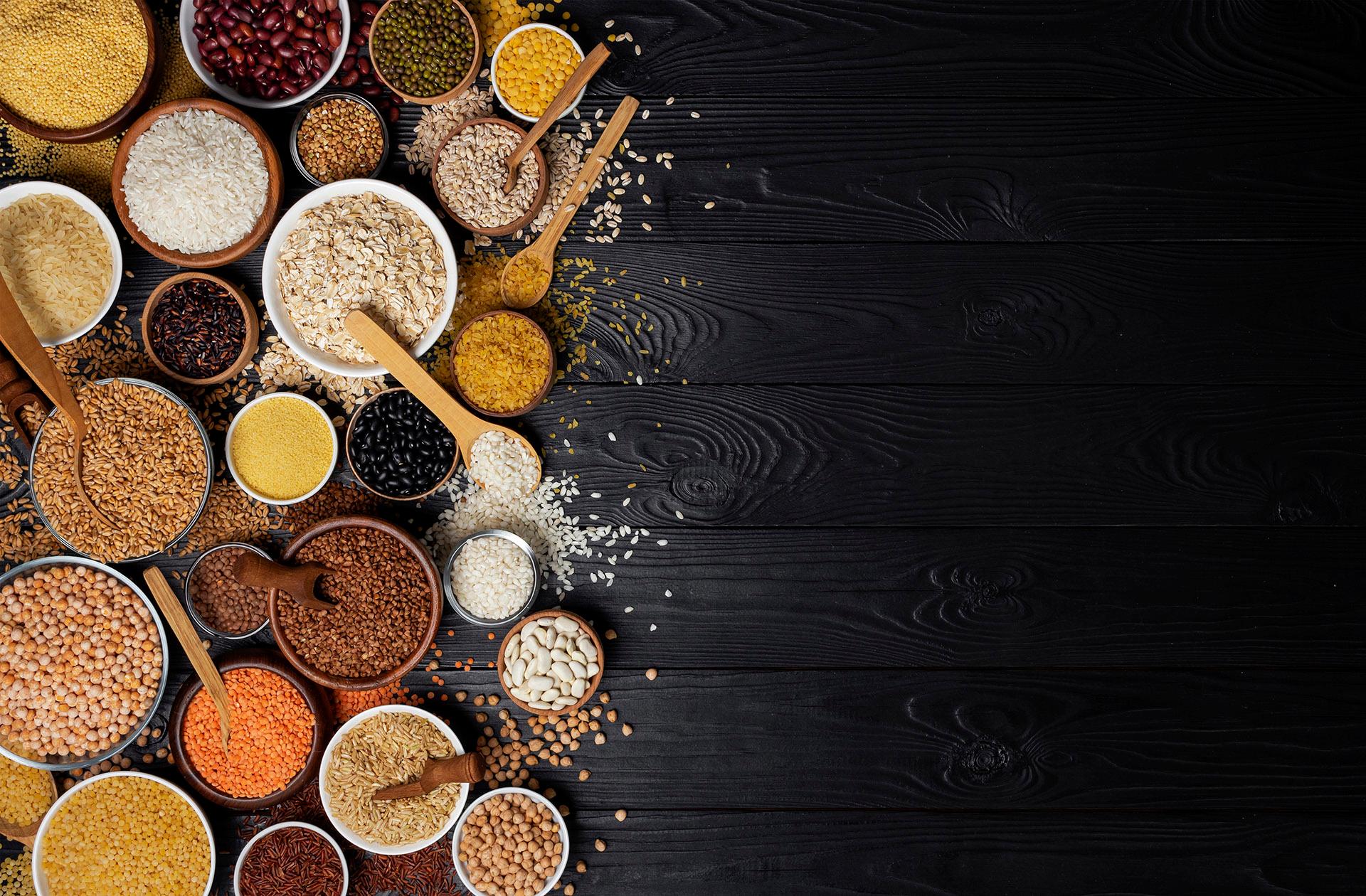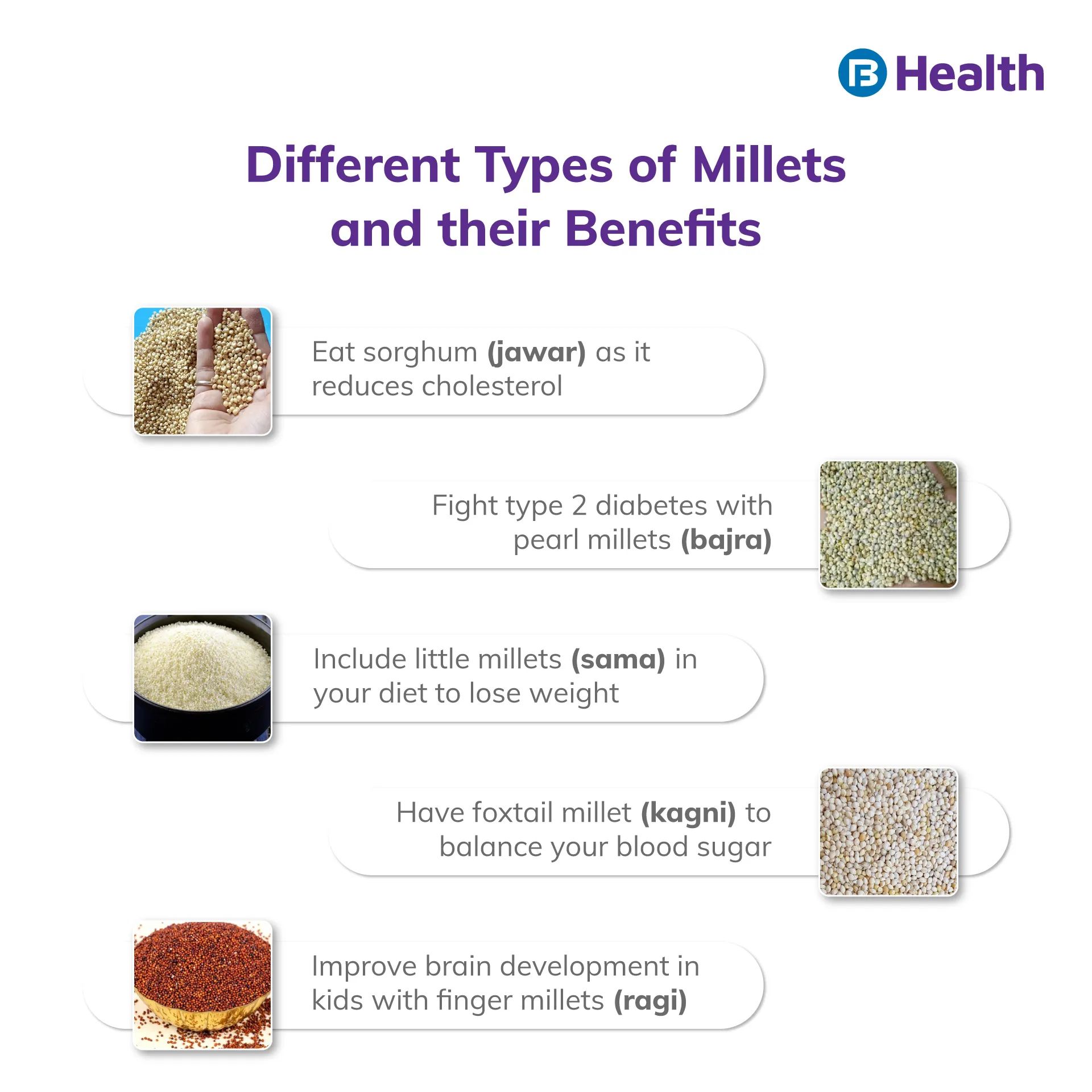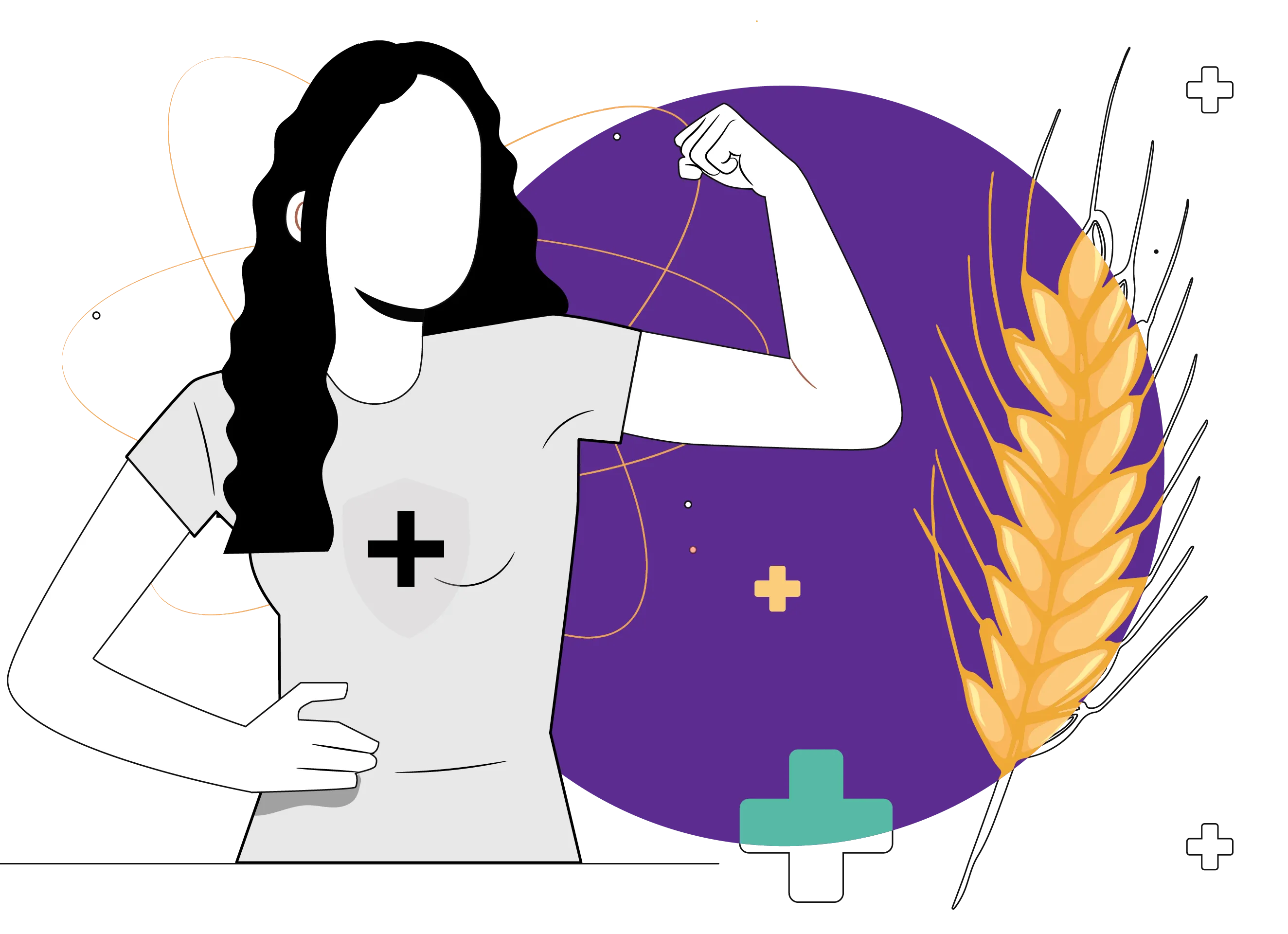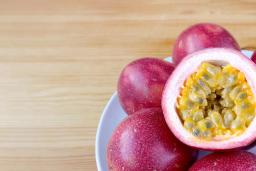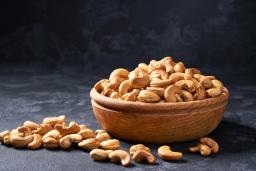Millets: Definion, Health Benefits, Uses and Side Effects
Key Takeaways
- Millets help regulate your blood sugar and cholesterol
- Manage your weight and curb your hunger by having millets
- Millets help fight infections by boosting your immunity
Do you wonder how millets gained immense popularity in recent years? This is so because millets are packed with the goodness of all essential nutrients. Their high protein and fiber content have made them a popular choice among health-conscious people. Though millet has been used for years in India, people were not aware of the many benefits of millet.
What is Millet?
Millets, also known as Bajra/Ragi/Jowar in the Indian context, are an important food item. It grows as tiny seeded grass on the field and is found worldwide. The presence of millets is found in the ancient Indian text Yajurveda with the names of foxtail millet (Priyanka), black finger millet (shyaamaka), and Barnyard millet (Canada) and black finger millet (Shyamalan). This testifies that the origin of millet consumption has gone back to the pre-bronze age in India, dated 4500 BC. Though people commonly consume it, it does not contain the necessary nutrients critical for health.
Nutritional Value of Millet
You’ll be amazed to know the nutritional value of millet. Take the look at the benefits you can get from one cup of cooked millet.
- Calories: 207
- Protein: 6g
- Carbs: 41g
- Magnesium: 19%
- Fiber: 2.2g
- Fat: 1.7g
- Phosphorous: 25%
- Iron: 6%
- Folate: 8%
Amongst all cereal, millets are those immunity-boosting foods that supply a majority of essential amino acids. With people realizing the importance of a balanced diet, millets have found a place in almost every kitchen shelf.
Reports reveal that millets are consumed in the form of breakfast porridge by approximately 38.3% of Indian population [1]. Remember, all of us want to follow healthy food habits. One way to do that is know the different types of millets you can incorporate in your diet:
- Pearl millet
- Barnyard
- Kodo
- Foxtail
- Little millet
Health Benefits of Millets
Prevents Colon Cancer
Foxtail Millet is said to minimize the risk of colon cancer because it combines the benefits of fibre and phytonutrients. Millet contains a phytochemical naturally found in the body that carries antioxidant substances. Millets act as a mammalian lignan, a type of steroid-like substance that gives protection against various diseases in the body, including breast cancer.
Heal Celiac Disease
Celiac is a disease of the small intestines, and it disrupts the nutrient absorption from food in the human body. Those who are a victim of this disease develop intolerance to gluten, a type of food protein commonly found in barley, wheat, etc. So, people who have celiac disease can consume millet as part of their diet.
Preserve Muscle Mass
Millets prevent thinning down of the muscle because of their high protein content. They also contain a certain substance called lysine which is a form of amino acid that prevents the degeneration of muscles and helps develop leaner muscles.
Contributes to Your Sleep
Millet is said to elevate the serotonin level in the body, which helps to de-stress you. Serotonin is a chemical substance that releases happy hormones in the body and automatically helps a person calm down. If you consume it at night, it will help you get good sleep.
Treats Menstrual Cramps
Millet is a great remedy for those women who undergo a lot of pain and cramps during their periods. This is because it contains a high quantity of magnesium which helps in the relaxation of the uterine muscles.
Helps Form Breast Milk
Childbearing women and those who are breastfeeding should consume millet in large amounts as it boosts breast milk production. This allows the mothers to breastfeed their babies for a longer time.
Read on to learn more about how having millets benefits you.
Additional Read: Superfoods in Daily DietsMaintains Blood Sugar
Millets contain a low glycemic index. This value is a measure to determine how rapidly a particular food can cause a spike in your sugar levels. If any food has a high glycemic index, it is digested and absorbed in the body quickly. This results your blood glucose levels to increase. On the contrary, foods like millets take time to be digested. This helps in maintaining your blood sugar [2].
Reduces Weight
Since millets are low in calories, having them is ideal for weight management. If you are fitness conscious, including millets in your diet is highly beneficial. Not only do they help maintain your energy but also suppress your hunger pangs. Millets keeps you satiated throughout the day. In fact, the time taken to digest and absorb millets is higher when compared to other carbs. Eating millets reduces overeating and unnecessary snacking as you tend to feel full for longer.
Lowers Your Cholesterol
The presence of soluble fiber in millets helps in lowering cholesterol. This fiber forms a viscous substance in the gut, which helps in trapping the fat. Eating millets reduces the risk of cardiovascular diseases as they lower bad cholesterol [3].
Additional read: What is Dietary CholesterolAids in Digestion
When you consume millets, it helps in the production of pancreatic fluid that aids in digestion. This way your metabolism gets a boost thereby helping you maintain a healthy digestive system. Millets also increase the secretion of hydrochloric acid that further aids in the digestion process. If you are facing indigestion and constipation, include millets in your diet to resolve these issues.
Increases Your Immunity
Millets boost your immune system and helps prevent infections. Since they contain essential minerals like zinc, phosphorous, magnesium and manganese, millets keep you safe from diseases. The presence of antioxidants such as phenolic compounds protects your cells from harmful free radicals. Millets also contain proteins that helps strengthen your immunity.
Removes Toxins From Your Body
Millets cleanse your body and improve your colon health. They help in boosting your energy levels and improves the functioning of your gut. Millets also lower inflammation as they contain a higher fiber content in comparison to other cereals. The beta-glucan present in millets helps in increasing the activity of white blood cells. This way toxins get eliminated from your system.
Improves Bone Health
For strong bones, one of the most important nutrients your body requires is calcium. Millets contain calcium and help in building strong bones. Include finger millets in your diet for strong and healthy bones.
Enhances Skin Elasticity
While you may be aware of other health benefits of millets, you may be surprised to note that they also improve your skin health! Being rich in vitamin E, amino acids and magnesium, millets enhance the elasticity and smoothness of your skin. No wonder millets are called superfoods!
Millets Uses
Millets are associated with the production of alcoholic beverages in some cultures worldwide. Millet beer is popular in the Tao community, Orchid Island and the Atayal of Taiwan. In Nepal, it is used to produce distilled liquor, rakish.
It forms a part of the traditional alcoholic drink of the eastern Nepali communities like Sherpa, Tamang, Rai and Limbu people, tonga. Millets are majorly grown in dry and semi-dry places and are included in traditional dishes of several regions in the world. Mostly it is consumed as porridge. Also, millets are used as food for grazing animals, where an edible portion of the plant is kept in stock to feed them to cattle and sheep.
How Do I Add Millet to My Diet?
You can consume millet as your breakfast food and can also include it in your lunch and dinner. Millet rice is a healthy alternative to white rice. Check these healthy and delicious millet recipes, which you can easily try at home.
Millet Mixed Bhel Puri
You can make a healthy bhel puri plate by incorporating millet into it. You can add peanuts, tomatoes, potatoes, juice, lemon, and chillies and then put ragi millet into it. Give a good mix and eat it with chutney and chat masala and enjoy a perfect evening snack. It contains low fat and is not heavy for the stomach.
Millet Burger
Burgers are usually considered unhealthy, but you can mix millet to make them a healthy dish. You can combine kudo millet with basil, watermelon, coriander, mustard, and parsley and make the stuff. You can add chickpeas and lettuce to increase the health benefits. This nutritious meal will keep you energetic throughout the day.
Millet Custard Tartlets
You can prepare this sweet dish as tartlets or small open pastries with bajra, wheat, sugar and salt and put the fillings of fruit custard. You can add kiwi and honey for garnishing, which will enhance the taste.
Ragi Mixed Dosa
Dosa is a popular Indian recipe that can be consumed at any time. With simple ingredients like wheat, ragi, buttermilk and salt to taste, you make a batter and cook it in a dosa pan. It can be your breakfast or lunch/dinner option. You can enjoy it with coconut chutney.
Millet Porridge
Porridge is a popular breakfast recipe for people worldwide. It is a light dish and good for the stomach. You can enjoy the nutritional content of minerals, iron, protein and fibre in foxtail millet. First, soak it in water and add milk, banana, cashew, figs and other dry foods of your choice and make a scrumptious millet porridge.
Side Effects
If moderately consumed, it does not cause any side effects. However, excessive millet consumption can cause thyroid disorders as it contains a substance called goitrogen which triggers the growth of thyroid-stimulating hormones and leads to the enlargement of thyroid tissues. This further causes iodine deficiency in humans and disrupts the normal thyroid function in the body. Thyroid enlargement is one reason for depression, anxiety, and rough skin, and it could impair your normal thinking process. Studies have shown that Sudan, Africa, where millet is a staple food, often witnesses the condition of thyroid enlargement. So if you are suffering from a thyroid disorder, you should consume it in fewer amounts.
Including millets in your diet provides umpteen benefits. Millets can be taken in the form of noodles, snacks or even chapatis. However, take care not to overeat millets to avoid causing thyroid issues. To understand the right quantity to include, go for nutrition therapy. Speak to a reputed nutritionist on Bajaj Finserv Health via an online doctor consultation. This will help you understand how much and what type of millets to have as well as other foods that can keep you healthy.
FAQ
What happens if we eat millet daily?
Eating millet daily will provide you with several health benefits. It helps women to fight off heart ailments post-menopause. It could also control high blood pressure and cholesterol level in the body. Those suffering from gallstones should also benefit from it since it contains fibre, and research has claimed that an increasing level of fibre intake experiences fewer gallstone occurrences.
What is the best time to eat millet?
You can consume millet at any time of the day, preferably in the morning, at noon and at night.
Is millet healthier than rice?
Millet is a healthier rice alternative since it contains more protein and fibre than rice.
Who should avoid eating millet?
People having thyroid disorders should avoid consuming millet because it leads to the enlargement of the thyroid.
How many times can I eat millet in a week?
It is best to consume millet in moderate amounts; three or four times a week is ideal.
- https://www.frontiersin.org/articles/10.3389/fsufs.2021.680777/full
- https://www.ncbi.nlm.nih.gov/pmc/articles/PMC5037128/
- https://www.ncbi.nlm.nih.gov/pmc/articles/PMC4033754/
Please note that this article is solely meant for informational purposes and Bajaj Finserv Health Limited (“BFHL”) does not shoulder any responsibility of the views/advice/information expressed/given by the writer/reviewer/originator. This article should not be considered as a substitute for any medical advice, diagnosis or treatment. Always consult with your trusted physician/qualified healthcare professional to evaluate your medical condition. The above article has been reviewed by a qualified doctor and BFHL is not responsible for any damages for any information or services provided by any third party.
